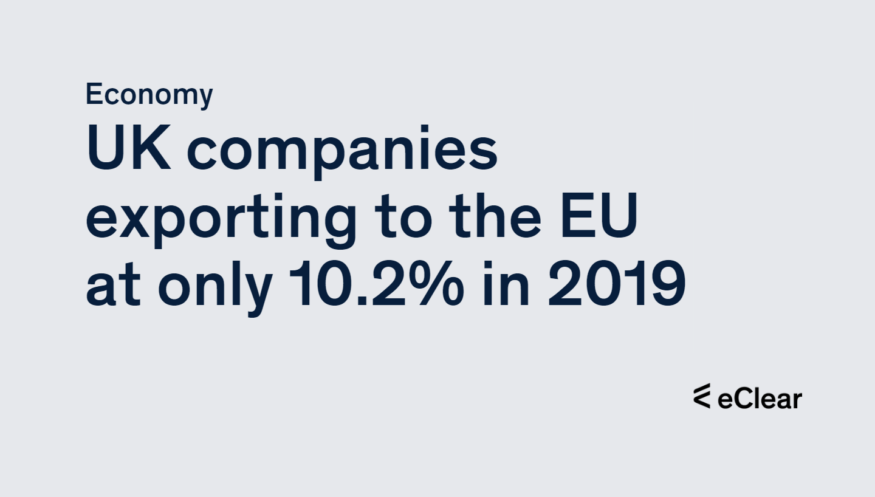According to the latest information published on the UK Trade in Numbers website, the share of UK companies exporting to the EU was only 10.2% in 2019.
What has the trade with the EU looked like so far?
From May 2021 until May 2022
- In terms of exports, UK trade recorded an increase of 9.4%.
- Imports were up by 19.4% in the year under review.
The above data should be considered together with the comparison for January-May 2021 and January-May 2022:
- Exports from the UK to EU Member States increased by 58.8% (from €54.4 million to €86.4 million).
- Exports from EU countries increased by 28.9%.
The vast difference between the increase in total exports of EU-based companies (28.9%) and the increase in exports of UK-based companies (9.4%) shows that there is still room for UK retailers to improve these statistics and take a more active role in cross-border commerce.
The most important EU partners for UK exporters were Germany, the Netherlands, Ireland, and France (almost 26% of total sales).
Exporting from the UK to the EU: VAT implications
On the UK side, supplies are subject to UK VAT, and a zero rate should apply provided certain conditions are met, such as:
- The goods must be physically exported within a time limit (currently three months); and
- Evidence (official or commercial) must be provided to support the entitlement to the zero rate, again within a time limit (currently three months).
As far as the proofs and customs documents for VAT processing are concerned, the UK retailer must collect the following documents, among others:
- Official or commercial proof of export using the National Export System (NES), e.g. a copy of the Goods Departed Message (GDM) or a screen print of the Customs Handling of Import Export Freight (CHIEF) with status codes;
- Additional supporting documents for export transactions may also be required.
In the European Union, customs duties (if applicable) and import VAT must be paid on these imports. In the EU, there are various ways to account for import VAT.
Generally, import VAT is due at the time of import and can be reclaimed later via a local VAT return (e.g. like the current system in the UK) if VAT registration is required.
However, as in the UK, EU VAT rules allow Member States to introduce schemes to defer and postpone import VAT. These schemes can significantly impact the cash flow effect of imports into Europe.
Finally, it is worth remembering that an EORI number is essential for communication with customs authorities.
So when importing and exporting goods from the EU, there are some essential points to bear in mind:
- For export, the UK retailer needs a UK EORI number; and
- for import in addition to an EU EORI number if the UK retailer:
- does not have a subsidiary or branch in an EU Member State, and
- retain ownership of the goods when they are delivered in Europe
- You need an indirect representative for customs purposes.
Source: imrg.org







